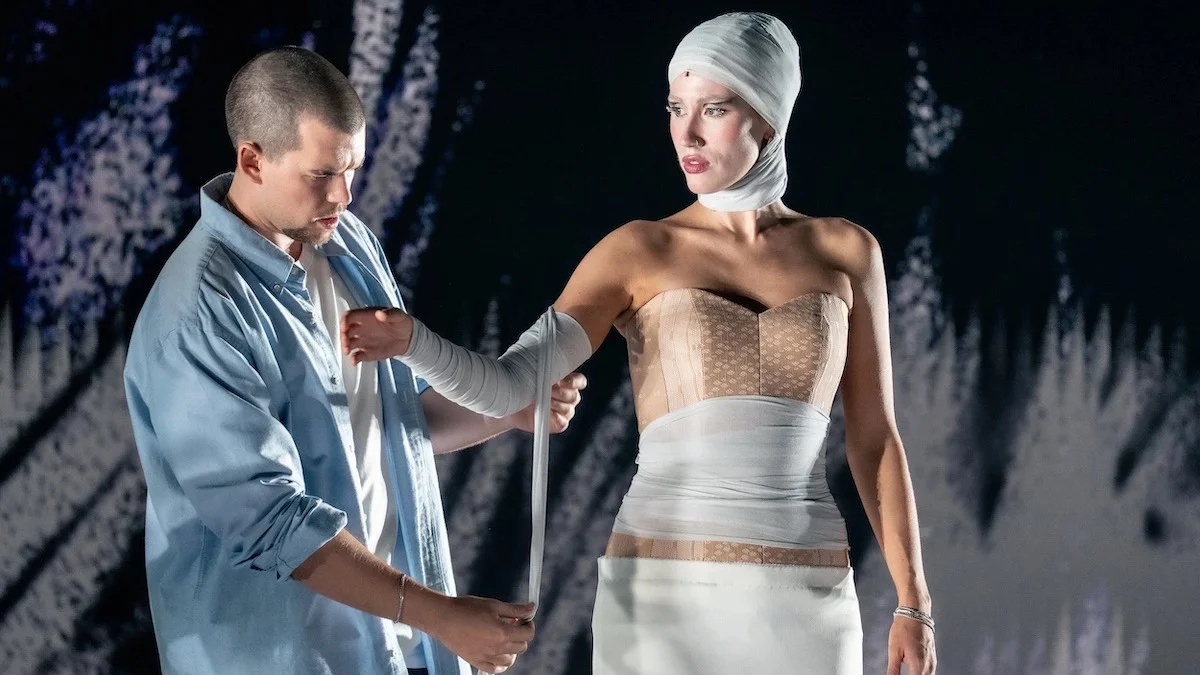By Robert Hofler
Copyright thewrap

Qualities other than talent can go into choosing what’s best in the theater. Last season, Sarah Snook and Andrew Scott took home best actor awards for their respective solo performances in “The Picture of Dorian Gray” and “Vanya.” Was it talent being honored? Or was it also the sheer stamina it took for each of them to get through more than 90 minutes on stage alone without a bathroom break?
Luke Newton, a star of “Bridgerton,” achieves something else in “House of McQueen,” which opened Thursday at The Mansion. He gives a totally beguiling performance as the late fashion designer Alexander McQueen in Darrah Cloud’s play, staged in a production by director Sam Helfrich, that is otherwise a mess.
The 2025-26 theater season has many more months to go, but onstage it’s doubtful any actor will top Newton for delivering such an impressive performance against such impossible odds. His McQueen is a real chameleon. He’s oftentimes both indulgent and determined, talented and creepy, sympathetic and repellent, dismissive and forgivable.
Cloud’s two-hour two-act play gets off to an effective start with McQueen’s suicide in 2010 at age 40. Nothing quite kicks off the evening like an actor putting a gun in his mouth or tying a belt around his neck. Also arresting is Jason Ardizzone-West’s sleek shell of a set that provides ample space to showcase Brad Peterson’s dazzling video and projection designs. The water imagery is lovely to behold, and while we’re told that McQueen had a penchant for violence in his fashion – an early show of his was inspired by Jack the Ripper – only the slashes of blood on the screens, not the costumes themselves, by Kaye Voyce, communicate the designer’s much vaunted, and perhaps unjustified, hatred of women.
Cloud’s play is a series of snippets, told out of order, that are grabbed from Rick Lazes and Seth Koch’s McQueen biography. Every scene is so short and undeveloped that the title character emerges as a jumble of clichés produced by an abusive father, an adoring mother, snobbish employers, and HIV-infected lovers.
One leitmotif is a TV interview that McQueen conducts with a reporter, played by Emily Skinner, who also essays McQueen’s mother. She doesn’t change her wig and costume for these repeated interludes because late in the play the interviewer character turns into the mother character. One has to assume the interview is verbatim from a transcript of some real interview by McQueen; otherwise, why would it be so dreadfully uninsightful? What playwright would write such a thing from scratch? It fails to tell us anything about the fashion designer.
And, of course, there’s the drugs. When the whole fashion scene becomes too much for McQueen to endure, Cloud and Helfrich stage a Depression-era dance contest to show the lead character’s exhaustion as he burns his way through one partner (friends, business associates, tricks, relatives) after another. What year is it: 1933 or 2010?
“House of McQueen” might have been more effective if Cloud had limited its scope to tell the story of McQueen’s relationship with Isabela Blow (Catherine LeFrere), his muse and mentor, the magazine fashion editor who championed his work from the get-go. Blow also negotiated McQueen’s lucrative contract with Gucci, and then he proceeded to dump her. What went down there is worth exploring, but like everything else in “House of McQueen,” the whole Gucci saga is tossed off with something as casual as McQueen simply being too busy with his latest collection to take Blow’s desperate phone calls.
As written by Cloud and played by LeFrere, Blow never emerges as anything more than a talentless hanger-on. She was something more and she deserves much better.
The other big mystery in “House of McQueen” is how Newton can keep his own clear force and direction in this muddled production.



